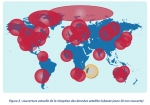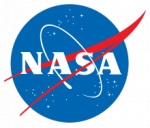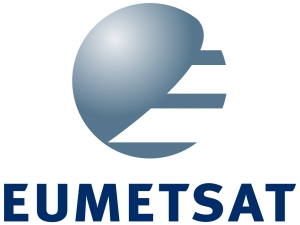Displaying items by tag: mission operations
Terma A/S
Terma A/S is a Danish defense and aerospace manufacturer for both civilian and military applications, and is owned by the Danish company Thrige Holding A/S.
It is operating in the aerospace, defense, and security sector, Terma supports customers and partners all over the world. With more than 1,100 committed employees worldwide, Terma develops and manufactures mission-critical products and solutions.
The company was founded in 1944. Terma A/S headquarters are located in Lystrup near Århus, Denmark. Terma international locations include Leiden in the Netherlands, Darmstadt in Germany near Frankfurt, Warner Robins in the USA.
Command and Control Technologies Corp.
Command and Control Technologies Corporation (CCT) provides real-time mission critical automation to help decision makers control their operations efficiently and effectively. CCT specializes in the design and development of highly automated control systems for mission critical applications like range control, space launch, automated perimeter security, and industrial process control.
Mission critical is not just about IT. Mission critical is delivering a weapon on target. It's safely controlling a power generation plant 7×24. It's ensuring the integrity and safety of range operations during a space launch. Mission critical is the requirement for continuous end-to-end performance to accomplish your mission. With extensive experience in automating such demanding operations, CCT understands mission critical operations.
The company was formed in 1997 to spin-off space operations automation technology developed for NASA.
GENSO
The main goal of GENSO is to realise a worldwide network of radio amateur and university ground stations to support the operations of university satellites.
In order to achieve this goal, GENSO has been designed as a distributed system connected via the internet. The software applications that facilitate the data sharing have been developed in Java by an international team of students. Mission controllers of university satellites can normally gather around 20 minutes of data per day with their own university ground station. GENSO will give them free access to potentially hundreds of stations around the globe via the internet and increase their data return to many hours per day. It will also allow them to command their spacecraft from the other side of the world.
GENSO offers the capability to plan and schedule utilisation of ground station resources, predict the trajectories of spacecraft over the ground station and automate tracking and hardware control during a pass. The downlinked mission data is provided to the mission controllers within a few minutes of the end of the pass. A real-time communications link for transmission of telecommands and reception of telemetry is also possible.
GENSO is a project of the European Space Agency (ESA) and is coordinated by ESA's Education Office. The University of Vigo in Spain hosts the European Operations Node and coordinates access to the GENSO network. The software development was carried out by a distributed set of students and radio amateur teams worldwide. From 2007-2010, over 100 students from universities in Europe, Japan and the USA contributed to GENSO.
GENSO means "Global Educational Network for Satellite Operations".
GOLL LLC
GOLL LLC provides expert consulting and engineering solutions in the areas of spacecraft integration & testing, industrial automation of factory processes for the space industry, spacecraft command, control & communications, autonomous operations, flight software and onboard autonomy.
GOLL LLC engineering staff are supporting NASA Ames' LADEE and IRIS projects.
Vitrociset S.p.A.
Vitrociset SPA is a group headquarted in Rome, Italy.
Vitrociset's activity in the space market dates back to 1982 with the awarding of a turnkey contract for the ESA (European Space Agency) Redu tracking station.
Now it has complete portfolio of products and services for key players of the space sector (ASI, CNES, Arianespace, MOD and Satellite Operators). This includes the design and development of mission-critical systems - an example of which is the development of essential components of the User Segment in the HELIOS mission, as well as of the SICRAL satellite communication system and the ESA Simulators and Control Centres.
The company is active:
- in the launch site of French Guyana
- in all operating centres of the ESA (ESOC, ESTEC, ESRIN) ; see Vitrociset Belgium
Projects, realizes and manages systems and services through value-for-money solutions able to provide quality and security based on the highest standards of innovation, in civil and military areas, for public administrations, government agencies, international organizations and private companies.
Logica plc
Logica is a global IT and management consultancy company headquartered in Reading, United Kingdom.
Logica is a management consultancy, outsourcing and IT services and solutions company. Its activities include supporting the missions of over 150 orbiting satellites.
NASA - Goddard Space Flight Center (GSFC)
The Goddard Space Flight Center (GSFC) is a major NASA space research laboratory established on May 1, 1959 as NASA's first space flight center. GSFC employs approximately 10,000 civil servants and contractors, and is located approximately 6.5 miles (10.5 km) northeast of Washington, D.C. in Greenbelt, Maryland, USA. GSFC, one of ten major NASA field centers, is named in recognition of Dr. Robert H. Goddard (1882–1945), the pioneer of modern rocket propulsion in the United States.
GSFC is the largest combined organization of scientists and engineers in the United States dedicated to increasing knowledge of the Earth, the Solar System, and the Universe via observations from space. GSFC is a major U.S. laboratory for developing and operating unmanned scientific spacecraft. GSFC conducts scientific investigation, development and operation of space systems, and development of related technologies. Goddard scientists can develop and support a mission, and Goddard engineers and technicians can design and build the spacecraft for that mission. Goddard scientist John C. Mather shared the 2006 Nobel Prize in Physics for his work on COBE.
GSFC also operates two spaceflight tracking and data acquisition networks (the Space Network and the Near Earth Network), develops and maintains advanced space and Earth science data information systems, and develops satellite systems for the National Oceanic and Atmospheric Administration (NOAA).
GSFC manages operations for many NASA and international missions including the Hubble Space Telescope (HST), the Explorer program, the Discovery Program, the Earth Observing System (EOS), INTEGRAL, the Solar and Heliospheric Observatory (SOHO), the Rossi X-ray Timing Explorer (RXTE) and Swift. Past missions managed by GSFC include the Compton Gamma Ray Observatory, SMM, COBE, IUE, and ROSAT. Typically, unmanned earth observation missions and observatories in Earth orbit are managed by GSFC, while unmanned planetary missions are managed by the Jet Propulsion Laboratory (JPL) in Pasadena, California.
ESA - ESOC (European Space Agency)
ESOC is the European Space Operations Centre, one of the centres of the European Space Agency (ESA).
Since its creation in 1967, the European Space Operations Centre (ESOC) in Darmstadt, Germany, has planned missions, operated more than 60 satellites and ensured that spacecraft meet their mission objectives. The mandate of ESOC is to conduct mission operations for ESA satellites and to establish, operate and maintain the necessary ground segment infrastructure.
EUMETSAT
The European Organisation for the Exploitation of Meteorological Satellites (EUMETSAT) is an intergovernmental organisation created through an international convention agreed by a current total of 30 European Member States.
EUMETSAT's primary objective is to establish, maintain and exploit European systems of operational meteorological satellites. EUMETSAT is responsible for the launch and operation of the satellites and for delivering satellite data to end-users as well as contributing to the operational monitoring of climate and the detection of global climate changes.
The activities of EUMETSAT contribute to a global meteorological satellite observing system coordinated with other space-faring nations.
Satellite observations are an essential input to numerical weather prediction systems and also assist the human forecaster in the diagnosis of potentially hazardous weather developments. Of growing importance is the capacity of weather satellites to gather long-term measurements from space in support of climate change studies.
EUMETSAT is not part of the European Union, but became a signatory to the International Charter on Space and Major Disasters in 2012, thus providing for the global charitable use of its space assets.[1]
- public organisation
- Europe
- mission operations
- satellite operator
- meteorology
- Copernicus (EO program)
- Meteosat Third Generation
- Meteosat
- Meteosat Second Generation
- MTG
- MSG
- MTP
- Meteosat Transition Phase
- METOP
- METOP SG
- Sentinel 1
- Sentinel 2 satellite
- Sentinel 2
- Sentinel 3
- Sentinel 4
- sentinel 5P
- sentinel 5
- Sentinel 6
- JasonCS
- Jason 2
- Jason 3
- EPS
- EPS_SG
- NOAA









